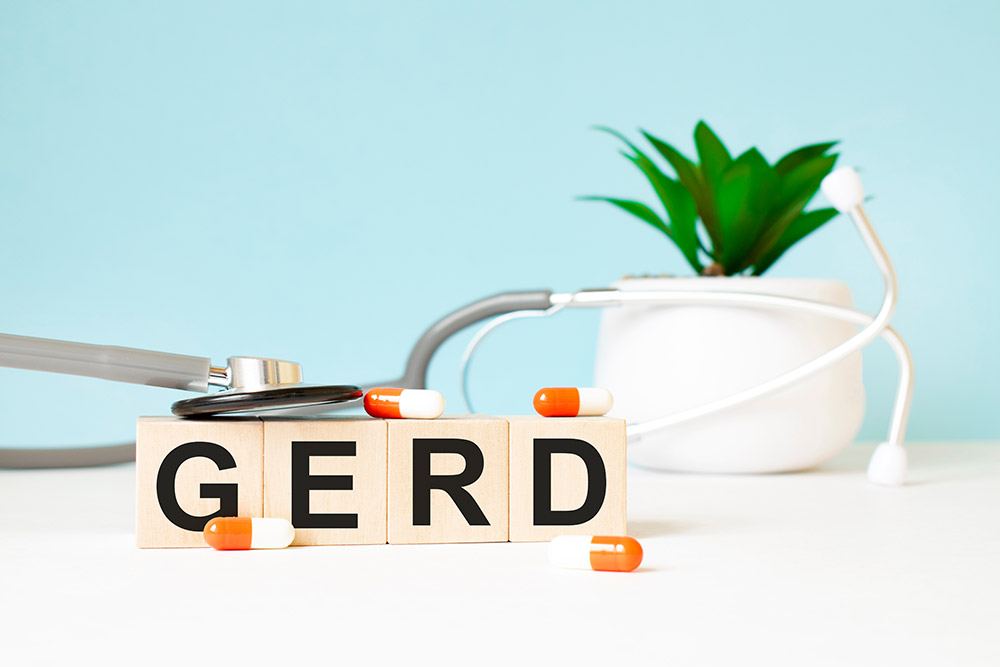
Gastroesophageal reflux disease (GERD) make a good sleep a battle. The question that many residents of Houston and outside are asking is, can GERD lead to sleep issues? The short answer is yes. As the acid in your stomach travels up your esophagus, it may cause heartburn, coughing, choking, and other effects particularly at night. It is our mission at GastroDoxs to make you sleep once again. Dr. Bharat Pothuri and our team Houston gastroenterology have come to this post to provide insights, expert tips, and nighttime GERD remedies that are effective.
GERD is a condition whereby acid in the stomach reverses to the esophagus. The lining is irritated by this reflux which results in heart burn and other symptoms. Although occasional reflux is normal, chronic symptoms can be an indication of GERD. The NIH reports that approximately 20 per cent of adults in the U.S. have heartburn related to GERD at least once a week. An additional 40,000 children and thousands of adults in the U.S. suffer from other types of thyroid cancer. Another 40,000 children and thousands of adults in the U.S. are afflicted by other forms of thyroid cancer.
What is the impact of GERD on sleep? The splashing of the acid at night may interfere with your sleep cycle in a number of ways:
The pain due to burning can wake you up again and again, says Dr. Bharat Pothuri of GastroDoxs. With time, sleep deprivation causes fatigue, sleepiness, and lack of concentration.With treatment of GERD and change of habits, majority of the individuals can get back to sleep.
GERD can wear you down. These are two common areas of concern:
When you have a chest pains, consult a doctor. In the case of a non-cardiac chest pain, a Houston gastroenterologist can rule GERD as the cause.
Why does acid reflex usually aggravate at night? When you are on your feet, the stomach acid is retained by gravity. But when you recline:
According to Dr. Pothuri, one of the offenders is eating late and in particular, consuming large meals. Attempt to have dinner two or three hours before going to bed.
So, the best gastroenterologist tips on how to sleep with GERD come straight to Dr. Pothuri:
In search of night time gerd cures? Add lifestyle modifications to over-the-counter (OTC) or prescription ones:
Your doctor may prescribe:
Take the advice and dosage of your Houston gastroenterologist always.
| Type of remedy | When relief begins | Relief lasts how long | Advantages | Disadvantages |
| Antacids | <5 minutes | 1-2 hours | Quick, easy to take | Short-lived, possibly gaseous |
| H2 Blockers | 30-60 minutes | 8-12 hrs | Mild side effects | Not as powerful as PPIs |
| OTC PPIs | 2-3 days (full) | 24 hours | Powerful, once daily | Takes time to act OCTC |
| Prescription PPIs | 1-2 days | 24-48 hours | Individual dosing | Could entail medical surveillance |
| Lifestyle Changes | Varies | Long-term | None of the side effects | Require consistency |
Being a resident of Houston implies spicy Tex-Mex food, eating out late, and humidity. The following is how to maintain GERD at bay and enjoy life in Bayou City:
GERD does not need to rob you of your sleep. Knowing how reflux is ruining your sleep, by means of simple lifestyle modifications and by way of effective nighttime GERD medicines that are effective, you can get back to enjoying your nights. Keep in mind the tip given by Dr. Bharat Pothuri: small changes result in big improvements. Make an appointment with your Houston gastroenterologist at GastroDoxs in case your symptoms continue.
Hopefully, with this guide you can sleep better. To receive individual attention in Houston, please visit GastroDoxs or call our office to make your appointment with Dr. Bharat Pothuri. Sweet dreams!
Yes. In the night, acid reflux may wake you up and lead to coughing and failure to attain deep sleep.
It makes it uncomfortable, painful and awakenings that prevent getting much sleep and make you feel exhausted.
When lying flat, you decrease the work of gravity in retaining acid in your stomach and may also loose the LES.
Acid refluxed may also irritate your throat causing coughs or sensation of choking.
Raise your head, do not eat late, sleep on your left hand side, and take into consideration OTC.
Generally, antacids, H2 blockers, and OTC PPIs are safe. Always take as directed.
Significant hints: Raise bed head, schedule meals and stay at a healthy weight.
Others are relieved using ginger tea, chamomile or aloe vera juice. Check with your doctor first.
When your chest pains are severe, if you are refluxing more than twice a week, or when the symptoms do not appear in spite of the treatment, then it is time to consult a doctor.
For some, yes. Symptoms may be significantly decreased by means of weight loss, diet changes, and cessation of smoking.